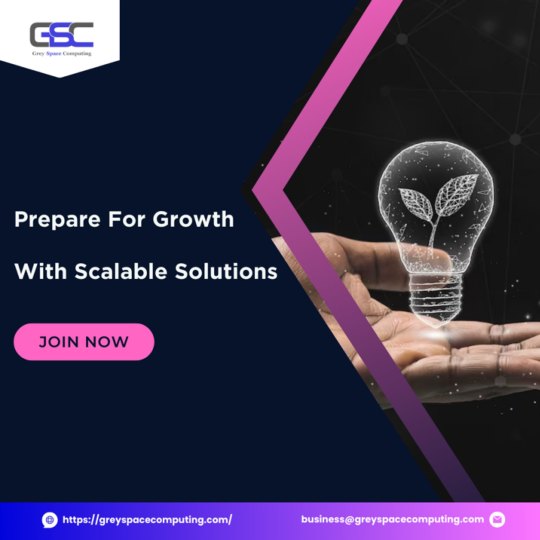#Security DevOps
Explore tagged Tumblr posts
Text
Allyn Dilly - A Senior Security DevOps Engineer
Allyn Dilly, the harmonious multitasker, excels as a Senior Security DevOps Engineer. When not safeguarding digital realms, he orchestrates heartwarming cancer benefit shows such as "Bearded Dragon," sharing stages with his dad. Offstage, he coaches his children's sports teams, dives into video games, and explores the cosmos.
1 note
·
View note
Text
How secure are your Linux passwords? 🤔 Test them in seconds with this simple CLI trick:
echo -n "password" | cracklib-check

-> See HowTo: Linux Check Password Strength With Cracklib-check Command for more info
43 notes
·
View notes
Text

Can't bots just trust we're human without the robot dance-off? 😄
#linux#linuxfan#linuxuser#ubuntu#debian#dev#devops#webdevelopment#programmingmemes#linuxmemes#memes#cat#coding#developer#tech#ethicalhacking#computerscience#coder#security#infosec#cyber
153 notes
·
View notes
Text
"A DevOps engineer is just as capable of malicious behavior as any other engineer. The solution isn't to block access—it's to make actions transparent and reviewable. Security comes from visibility, not locked doors."
2 notes
·
View notes
Text

Hey this a warning to everyone be careful of scammer on Steam, seriously don't click on Chinese links got it? Stay safe and make sure to always check stuff.
#culture#cybersecurity#techinnovation#security#softwaredevelopment#devops#online scams#scams#phishing#scammers#psa#scam alert#steam#steam games#gaming#video game#pc games#technologies#computer#phones#technology#web#tbb tech#apple#tech#danger#threat#dangerous#stay safe#be safe
2 notes
·
View notes
Text
Secure and Scalable Cloud Server Management at Atcuality
For businesses seeking to enhance scalability and maintain top-tier security, Atcuality provides unparalleled cloud server management services. Our solutions cover all aspects of cloud server maintenance, including load balancing, patch management, data backups, and disaster recovery planning. Our experienced professionals work with cutting-edge tools to ensure that your servers are secure, efficient, and scalable to meet changing business needs. Whether you operate in e-commerce, finance, or technology, we tailor our services to align with your operational goals. With Atcuality as your trusted partner, you can focus on driving growth while we handle the technical complexities of cloud management.
#seo marketing#seo services#artificial intelligence#azure cloud services#seo agency#digital marketing#seo company#iot applications#ai powered application#amazon web services#ai applications#virtual reality#augmented reality agency#augmented human c4 621#augmented and virtual reality market#augmented intelligence#augmented reality#cloud security services#cloud computing#cloud services#cloud service provider#cloud server hosting#software#devops#information technology#cash collection application#task management#blockchain#web developing company#web development
2 notes
·
View notes
Text

Growth is exciting, but only if your app can handle it! Cloud technology ensures your app scales effortlessly to meet increasing demand. 📈 Get ready for success! 🔗Learn more: https://greyspacecomputing.com/custom-mobile-application-development-services/ 📧 Visit: https://greyspacecomputing.com/portfolio
#GreySpaceComputing#CloudTech#AppScalability#cloudcomputing#cloud#technology#cybersecurity#aws#bigdata#devops#it#datacenter#azure#cloudstorage#linux#programming#software#tech#iot#cloudservices#coding#cloudsecurity#machinelearning#informationtechnology#datascience#business#python#security#microsoft#dataprotection
2 notes
·
View notes
Text
Journey to Devops
The concept of “DevOps” has been gaining traction in the IT sector for a couple of years. It involves promoting teamwork and interaction, between software developers and IT operations groups to enhance the speed and reliability of software delivery. This strategy has become widely accepted as companies strive to provide software to meet customer needs and maintain an edge, in the industry. In this article we will explore the elements of becoming a DevOps Engineer.
Step 1: Get familiar with the basics of Software Development and IT Operations:
In order to pursue a career as a DevOps Engineer it is crucial to possess a grasp of software development and IT operations. Familiarity with programming languages like Python, Java, Ruby or PHP is essential. Additionally, having knowledge about operating systems, databases and networking is vital.
Step 2: Learn the principles of DevOps:
It is crucial to comprehend and apply the principles of DevOps. Automation, continuous integration, continuous deployment and continuous monitoring are aspects that need to be understood and implemented. It is vital to learn how these principles function and how to carry them out efficiently.
Step 3: Familiarize yourself with the DevOps toolchain:
Git: Git, a distributed version control system is extensively utilized by DevOps teams, for code repository management. It aids in monitoring code alterations facilitating collaboration, among team members and preserving a record of modifications made to the codebase.
Ansible: Ansible is an open source tool used for managing configurations deploying applications and automating tasks. It simplifies infrastructure management. Saves time when performing tasks.
Docker: Docker, on the other hand is a platform for containerization that allows DevOps engineers to bundle applications and dependencies into containers. This ensures consistency and compatibility across environments from development, to production.
Kubernetes: Kubernetes is an open-source container orchestration platform that helps manage and scale containers. It helps automate the deployment, scaling, and management of applications and micro-services.
Jenkins: Jenkins is an open-source automation server that helps automate the process of building, testing, and deploying software. It helps to automate repetitive tasks and improve the speed and efficiency of the software delivery process.
Nagios: Nagios is an open-source monitoring tool that helps us monitor the health and performance of our IT infrastructure. It also helps us to identify and resolve issues in real-time and ensure the high availability and reliability of IT systems as well.
Terraform: Terraform is an infrastructure as code (IAC) tool that helps manage and provision IT infrastructure. It helps us automate the process of provisioning and configuring IT resources and ensures consistency between development and production environments.
Step 4: Gain practical experience:
The best way to gain practical experience is by working on real projects and bootcamps. You can start by contributing to open-source projects or participating in coding challenges and hackathons. You can also attend workshops and online courses to improve your skills.
Step 5: Get certified:
Getting certified in DevOps can help you stand out from the crowd and showcase your expertise to various people. Some of the most popular certifications are:
Certified Kubernetes Administrator (CKA)
AWS Certified DevOps Engineer
Microsoft Certified: Azure DevOps Engineer Expert
AWS Certified Cloud Practitioner
Step 6: Build a strong professional network:
Networking is one of the most important parts of becoming a DevOps Engineer. You can join online communities, attend conferences, join webinars and connect with other professionals in the field. This will help you stay up-to-date with the latest developments and also help you find job opportunities and success.
Conclusion:
You can start your journey towards a successful career in DevOps. The most important thing is to be passionate about your work and continuously learn and improve your skills. With the right skills, experience, and network, you can achieve great success in this field and earn valuable experience.
2 notes
·
View notes
Text

2 notes
·
View notes
Link
#Apache#Automation#cloudhosting#configuration#controlpanel#DevOps#DNS#emailserver#Install#Linux#MySQL#NGINX#PHP#Security#servermanagement#systemadministration#Ubuntu22.04#Ubuntu24.04#Virtualmin#webhosting
0 notes
Text
DevSecOps Explained: DevOps + Security Benefits
Learn how DevSecOps merges security into DevOps workflows to build secure, high-quality applications from the start.
0 notes
Text
The Nine Minds: Your Trusted Business Technology Solutions Provider for the Digital Age

In today’s ever-evolving digital landscape, businesses face increasing pressure to stay agile, competitive, and future-ready. From streamlining operations to enhancing customer experiences, technology plays a pivotal role in driving success. But with countless options and platforms available, navigating the tech world can feel overwhelming. That’s where The Nine Minds steps in—your go-to business technology solutions provider offering tailored, intelligent solutions for businesses of all sizes.
What is a Business Technology Solutions Provider?
A business technology solutions provider is more than just an IT support firm. It’s a strategic partner that helps organizations harness the power of technology to solve real-world business problems. From digital transformation to cloud computing, cybersecurity, data analytics, and automation—these solutions are designed to optimize efficiency, reduce costs, and empower teams.
The Nine Minds takes this role seriously, combining industry insight with innovative thinking to deliver end-to-end tech solutions that align with your unique business goals.
Who Are The Nine Minds? The Nine Minds is a forward-thinking technology consultancy dedicated to helping businesses bridge the gap between technology and strategy. With a team of expert developers, analysts, engineers, and business consultants, the company delivers customized technology services across multiple sectors including finance, healthcare, education, logistics, and retail.
Their mission is clear: to simplify complexity and unlock digital potential for growing businesses.
Core Services Offered by The Nine Minds As a full-service business technology solutions provider, The Nine Minds offers a wide array of services designed to meet the diverse needs of modern businesses:
Digital Transformation Consulting From legacy system upgrades to complete overhauls, The Nine Minds guides companies through the digital transformation process. They identify gaps, implement modern tech solutions, and help businesses stay ahead of the curve in a fast-changing digital world.
Custom Software Development No two businesses are the same, which is why off-the-shelf software often falls short. The Nine Minds builds custom web and mobile applications that are tailored to specific workflows, customer demands, and scalability requirements.
Cloud Integration & Migration Cloud technologies offer flexibility and cost-efficiency, but migrating from traditional systems requires expert handling. The Nine Minds helps businesses make a smooth transition to cloud platforms like AWS, Microsoft Azure, and Google Cloud—ensuring data integrity, security, and uptime.
Cybersecurity Solutions Cyber threats are on the rise. From ransomware to data breaches, even small businesses are targets. The Nine Minds implements robust security strategies, including threat detection, data encryption, compliance audits, and real-time monitoring to keep your business safe.
Business Intelligence & Data Analytics Making informed decisions starts with having the right data. The Nine Minds transforms raw information into actionable insights using advanced analytics tools, dashboards, and reporting systems tailored to your business needs.
IT Infrastructure Management Downtime and technical issues can cripple productivity. The Nine Minds offers proactive IT support, network setup, hardware optimization, and maintenance services to keep your infrastructure running smoothly.
Why Choose The Nine Minds?
The Nine Minds stands out as a business technology solutions provider because of its commitment to innovation, customer satisfaction, and long-term value. Here’s what makes them different:
Tailored Strategies: They take the time to understand your goals and create custom technology roadmaps.
Cross-Industry Experience: With expertise in multiple domains, they can apply best practices from one industry to another.
Agile Methodology: Their team uses agile development to deliver faster results with continuous improvement.
End-to-End Support: From initial consulting to implementation and ongoing maintenance, The Nine Minds is with you every step of the way.
Cost-Effective Solutions: They help businesses maximize ROI without compromising on quality or functionality.
Real Results for Real Businesses Companies that partner with The Nine Minds often report significant improvements in operational efficiency, employee productivity, and customer satisfaction. Whether it’s automating a manual process, integrating multiple systems into one platform, or improving cybersecurity posture, the results speak for themselves.
From small startups to growing enterprises, The Nine Minds has empowered businesses to scale with confidence in a digital-first world.
The Future of Business Starts Here As technology continues to evolve, so too must the businesses that use it. The Nine Minds is more than just a service provider—they’re a visionary partner helping organizations innovate, adapt, and thrive.
If you're looking for a reliable, experienced, and forward-thinking business technology solutions provider, look no further than The Nine Minds. Together, you’ll craft smarter strategies, adopt better tools, and build a stronger digital foundation for tomorrow’s success.
Ready to elevate your business with technology that works for you? Partner with The Nine Minds today.

#business technology solutions provider#it consulting austin#it consulting firm#technology consulting company#technology consulting services#devops automation consulting#cloud consulting services#managed it services provider#managed it services texas#managed security services provider
1 note
·
View note
Text
go home. all your security problem solved now. we can close down the cyber departments.

69 notes
·
View notes
Text

Windows: Hungry beast, Linux: Energy sipper!
#linux#linuxfan#linuxuser#ubuntu#debian#dev#devops#webdevelopment#programmingmemes#linuxmemes#memes#cat#coding#developer#tech#ethicalhacking#computerscience#coder#security#infosec#cyber
124 notes
·
View notes
Text
How debugging and data lineage techniques can protect Gen AI investments - AI News
New Post has been published on https://thedigitalinsider.com/how-debugging-and-data-lineage-techniques-can-protect-gen-ai-investments-ai-news/
How debugging and data lineage techniques can protect Gen AI investments - AI News


As the adoption of AI accelerates, organisations may overlook the importance of securing their Gen AI products. Companies must validate and secure the underlying large language models (LLMs) to prevent malicious actors from exploiting these technologies. Furthermore, AI itself should be able to recognise when it is being used for criminal purposes.
Enhanced observability and monitoring of model behaviours, along with a focus on data lineage can help identify when LLMs have been compromised. These techniques are crucial in strengthening the security of an organisation’s Gen AI products. Additionally, new debugging techniques can ensure optimal performance for those products.
It’s important, then, that given the rapid pace of adoption, organisations should take a more cautious approach when developing or implementing LLMs to safeguard their investments in AI.
Establishing guardrails
The implementation of new Gen AI products significantly increases the volume of data flowing through businesses today. Organisations must be aware of the type of data they provide to the LLMs that power their AI products and, importantly, how this data will be interpreted and communicated back to customers.
Due to their non-deterministic nature, LLM applications can unpredictably “hallucinate”, generating inaccurate, irrelevant, or potentially harmful responses. To mitigate this risk, organisations should establish guardrails to prevent LLMs from absorbing and relaying illegal or dangerous information.
Monitoring for malicious intent
It’s also crucial for AI systems to recognise when they are being exploited for malicious purposes. User-facing LLMs, such as chatbots, are particularly vulnerable to attacks like jailbreaking, where an attacker issues a malicious prompt that tricks the LLM into bypassing the moderation guardrails set by its application team. This poses a significant risk of exposing sensitive information.
Monitoring model behaviours for potential security vulnerabilities or malicious attacks is essential. LLM observability plays a critical role in enhancing the security of LLM applications. By tracking access patterns, input data, and model outputs, observability tools can detect anomalies that may indicate data leaks or adversarial attacks. This allows data scientists and security teams proactively identify and mitigate security threats, protecting sensitive data, and ensuring the integrity of LLM applications.
Validation through data lineage
The nature of threats to an organisation’s security – and that of its data – continues to evolve. As a result, LLMs are at risk of being hacked and being fed false data, which can distort their responses. While it’s necessary to implement measures to prevent LLMs from being breached, it is equally important to closely monitor data sources to ensure they remain uncorrupted.
In this context, data lineage will play a vital role in tracking the origins and movement of data throughout its lifecycle. By questioning the security and authenticity of the data, as well as the validity of the data libraries and dependencies that support the LLM, teams can critically assess the LLM data and accurately determine its source. Consequently, data lineage processes and investigations will enable teams to validate all new LLM data before integrating it into their Gen AI products.
A clustering approach to debugging
Ensuring the security of AI products is a key consideration, but organisations must also maintain ongoing performance to maximise their return on investment. DevOps can use techniques such as clustering, which allows them to group events to identify trends, aiding in the debugging of AI products and services.
For instance, when analysing a chatbot’s performance to pinpoint inaccurate responses, clustering can be used to group the most commonly asked questions. This approach helps determine which questions are receiving incorrect answers. By identifying trends among sets of questions that are otherwise different and unrelated, teams can better understand the issue at hand.
A streamlined and centralised method of collecting and analysing clusters of data, the technique helps save time and resources, enabling DevOps to drill down to the root of a problem and address it effectively. As a result, this ability to fix bugs both in the lab and in real-world scenarios improves the overall performance of a company’s AI products.
Since the release of LLMs like GPT, LaMDA, LLaMA, and several others, Gen AI has quickly become more integral to aspects of business, finance, security, and research than ever before. In their rush to implement the latest Gen AI products, however, organisations must remain mindful of security and performance. A compromised or bug-ridden product could be, at best, an expensive liability and, at worst, illegal and potentially dangerous. Data lineage, observability, and debugging are vital to the successful performance of any Gen AI investment.
Want to learn more about AI and big data from industry leaders? Check out AI & Big Data Expo taking place in Amsterdam, California, and London. The comprehensive event is co-located with other leading events including Intelligent Automation Conference, BlockX, Digital Transformation Week, and Cyber Security & Cloud Expo.
#adoption#Adversarial attacks#ai#ai & big data expo#ai news#AI systems#amp#anomalies#applications#approach#Artificial Intelligence#automation#Big Data#bug#bugs#Business#california#chatbot#chatbots#Cloud#clusters#Companies#comprehensive#conference#cyber#cyber security#data#data leaks#data sources#Devops
0 notes
Text
The MERN stack (MongoDB, Express.js, React.js, Node.js) is a popular full-stack JavaScript framework for building modern web applications. This stack allows developers to use a single language (JavaScript) across both client-side and server-side code. If you're a MERN stack developer, mastering key tasks within each of these technologies is crucial for creating robust and scalable web applications.
In this guide, we'll walk through the 10 most important tasks every MERN stack developer should master, helping you build a strong foundation for web development.
#MERNStack#MongoDB#ExpressJS#React#NodeJS#FullStackDevelopment#WebDevelopment#FrontendDevelopment#BackendDevelopment#JavaScript#API#RESTAPI#CRUDOperations#ReactJS#StateManagement#MongoDBQueries#Authentication#Authorization#JWT#Git#GitHub#DevTools#DevOps#Testing#PerformanceOptimization#Security#VersionControl#Deployment#CI/CD#Docker
0 notes